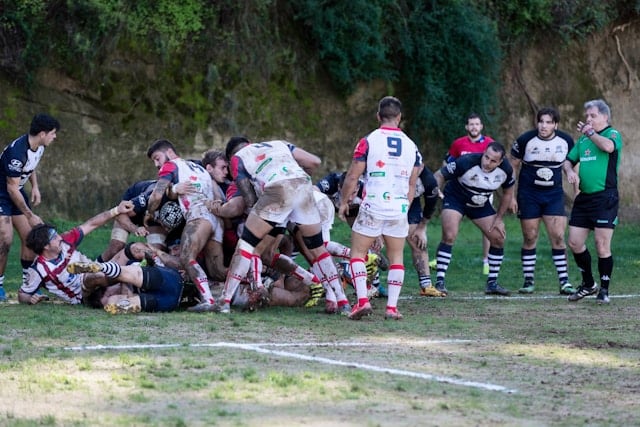How Can Video Gaming Strategies Enhance Spatial Awareness in Rugby Union Tacticians?

The modern world is increasingly leveraging technology to enhance various aspects of life, and the field of sports is not an exception. Video gaming strategies, for instance, are being employed to improve the performance of athletes in different sports. If you are involved in rugby union, as a player or coach, you might be wondering how video games can enhance your spatial awareness to improve your tactics. In this article, we’ll be discussing exactly that. The lessons are drawn from the latest research findings, cutting-edge technology, and real-life examples of individuals and teams who have successfully used video gaming strategies to their advantage.
Understanding Spatial Awareness in Rugby Union
Rugby Union is a demanding sport that requires mental agility as much as it does physical prowess. One of the crucial but often overlooked aspects of the game is spatial awareness.
Lire également : What’s the Role of Sleep Tracking Devices in Improving Rest Quality of Professional Volleyball Players?
Spatial awareness is all about recognizing and understanding the position of oneself in relation to other players, the ball, and the field. It is the ability to judge distances and angles, and to anticipate the movements of your teammates and opponents. Good spatial awareness can make the difference between a successful play and a missed opportunity.
In Rugby Union, spatial awareness comes into play in many situations. For example, when a player is looking to pass the ball, they need to be aware of where their teammates are, where the opponents are, and what spaces are available. Similarly, when defending, players need to be able to read the situation and position themselves effectively.
A lire également : What Are the Physiological Effects of Compression Garments on Post-Exercise Recovery in Sprinters?
Video Gaming Strategies and Spatial Awareness
Now, you may be wondering what video gaming has to do with spatial awareness in rugby union. But the connection is not as far-fetched as it might seem at first glance.
Video gaming, particularly strategy and action games, require players to navigate complex environments, keep track of multiple characters, and make quick decisions based on the changing circumstances. These are the same skills that are needed for good spatial awareness in rugby.
Moreover, video games are designed to be engaging and rewarding. When you play a video game, you are not just passively watching a screen but actively participating in a dynamic and challenging environment. This active engagement can make the learning process more effective and enjoyable.
Several studies have shown that playing video games can improve spatial skills. For example, a study published in the Journal of Neuroscience found that video gaming can enhance the brain’s ability to process visual information and make spatial judgments.
Incorporating Video Gaming into Rugby Training
The question then becomes, how can you incorporate video gaming strategies into your rugby training regimen? The answer is not to simply play more video games, but to use them as a tool for improving spatial awareness.
There are several ways to do this. One is to play games that are specifically designed to train spatial skills. These games often involve navigating through complex environments, solving puzzles that require spatial reasoning, or controlling multiple characters.
There are also virtual reality (VR) games that can provide an even more immersive and realistic training experience. VR games can simulate real rugby situations and allow players to practice their spatial awareness in a safe and controlled environment.
Another method is to analyze and learn from the strategies used in video games. For example, many games involve planning and executing complex maneuvers, anticipating the movements of opponents, and making split-second decisions. Studying these strategies can provide valuable insights that can be applied in rugby.
Real-Life Examples of Video Gaming Strategies in Rugby
The use of video gaming strategies in rugby is not just a theoretical concept but a reality that is already being implemented by some teams and players.
One notable example is the New Zealand All Blacks, one of the most successful teams in the history of rugby union. The All Blacks have been known to use a variety of innovative training methods, including video gaming. They use video games to train their players’ spatial awareness, decision-making skills, and ability to read the game.
Individual players are also embracing this trend. For instance, England international, Owen Farrell, reportedly uses video games to improve his spatial awareness and decision-making. Farrell, who is known for his excellent game-reading abilities, has attributed part of his success to his love for video games.
These examples show that video gaming strategies can be a valuable tool for enhancing spatial awareness in rugby union tacticians. However, like any tool, they must be used correctly and in conjunction with other training methods. Video games are not a magic bullet, but they can offer a unique and effective way to improve your game.
The Science Behind Video Gaming and Spatial Awareness
Science provides the backbone for understanding the connection between spatial awareness and video gaming. A plethora of scientific research has helped solidify the links between these two areas. Neuroscience plays a significant role in this connection, since both video gaming and sports like rugby tap into the brain’s abilities for spatial awareness, decision making, and problem-solving skills.
Researchers have discovered that video games stimulate the hippocampus and the right hippocampus in the brain – regions responsible for spatial navigation, strategic planning, working memory, and motor performance. Consequently, the stimulation of these regions enhances a player’s spatial awareness and decision-making ability, which are integral to performing well in rugby.
Moreover, the repetitive nature of gaming can lead to the neuroplasticity of the brain – the brain’s ability to change and adapt as a result of experience. This adaptability can transfer to the rugby field, enhancing a player’s ability to make split-second decisions, anticipate opponents’ moves, and understand the game’s dynamics better.
Scientists have also explored the impact of virtual reality (VR) in sports training. VR provides an immersive environment that closely mimics real-life situations, providing players with a safe platform to enhance their spatial awareness and tactical skills. Studies show that VR has the potential to significantly improve a player’s performance by providing a space to practice skills repetitively and learn from their mistakes without real-world consequences.
The Future of Video Gaming in Rugby Training
The future of video gaming in rugby training is bright, with emerging technologies promising to revolutionize how players train and improve their spatial awareness. Artificial intelligence (AI) and machine learning (ML) are among new technologies being incorporated into video gaming, offering personalized training experiences and helping players to predict and respond to different game situations.
AI can analyze a player’s performance in a video game and provide feedback to help them identify their weaknesses and strengths. Furthermore, AI can simulate different game scenarios, allowing players to practice their skills in a range of situations. In this way, players can enhance their spatial awareness and decision-making abilities, vital for their performance on the rugby field.
Machine learning, on the other hand, can help players understand the game’s nuances and tactics by learning from their past performances in the game. By analyzing the player’s moves, ML algorithms can provide insights and recommendations to improve the player’s tactics.
Looking ahead, it seems certain that video gaming will continue to play a significant role in rugby training. As technology advances and our understanding of the brain and spatial awareness deepens, we can expect video gaming strategies to become more sophisticated and effective, benefiting rugby players and tacticians alike.
Conclusion
The use of video gaming strategies to enhance spatial awareness in rugby union tacticians is an innovative and promising approach. Research and real-life examples show that video games can stimulate the areas of the brain responsible for spatial navigation and decision making, while offering a safe and engaging platform for players to hone their skills. Moreover, with the advancement of technology such as AI and ML, the potential for video gaming in rugby training is vast. As we look to the future, it’s clear that video gaming will continue to play a crucial role in the development and training of rugby tacticians, enhancing their spatial awareness and taking the game to new heights.
